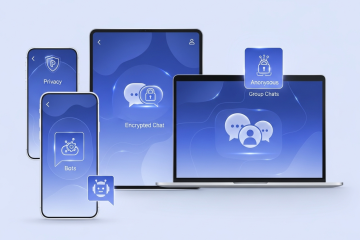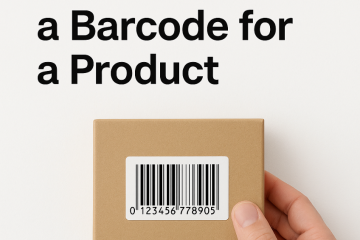The music industry is constantly evolving, and the digital era has brought musicians not only new opportunities but also new rules. Today, every release—whether a single, album, or compilation—must be properly identified so it can be distributed, discovered, and monetized. In this process, the UPC code (Universal Product Code) plays a crucial role.
In this article, we will cover:
- What a UPC code is and how it differs from other music identifiers;
- Why it is essential for artists, labels, and platforms;
- How exactly UPC helps with distribution and monetization;
- Where and how to obtain a UPC code for a release;
- Practical tips for using it effectively.
What is a Release UPC Code?
A UPC code (Universal Product Code) is a unique numeric sequence (usually 12 digits) assigned to a music release.
It can exist:
- As a barcode—for physical media such as CDs, vinyl, and cassettes;
- As a digital identifier—for online stores and streaming services.
🔑 Important: A UPC code is assigned to the entire release (album, EP, or compilation), not to individual tracks. Tracks use a different identifier called ISRC (International Standard Recording Code).
In short, ISRC tracks individual songs, while UPC groups the entire release as a single product.
Why UPC Codes Are Important in the Music Industry
UPC is not just a technical barcode—it performs several key functions:
Release Identification
UPC allows releases to be uniquely identified, even if different artists have albums or tracks with similar titles.
Sales Tracking
Each purchase (physical or digital) is recorded with a UPC. This is essential for revenue reporting.
Streaming Monetization
On platforms like Spotify, Apple Music, and Deezer, UPC links streams to the specific release and rights holder.
Charts and Statistics
Billboard, iTunes Charts, and other rankings use UPC to track sales and streams. Without a UPC, a release may not appear in statistics.
Transparent Payments
A correct UPC ensures that income from sales and streams is accurately allocated to the artist or label.
Music Distribution Using UPC
For artists and labels, UPC codes are fundamental for proper distribution.
Physical Media
If an artist releases CDs or vinyl, the UPC is printed on the packaging. At retail, the barcode is scanned, and data is automatically sent to sales tracking databases.
Digital Distribution
When an artist uploads a release through an aggregator (such as DistroKid, TuneCore, or CD Baby), the UPC is used to add the album to Spotify, Apple Music, YouTube Music, and other platforms.
Label Reporting
Labels use UPCs to monitor an artist’s commercial performance and calculate royalties.
Without a UPC, proper music distribution worldwide is nearly impossible.
Music Monetization Through UPC Codes
Digital streaming has become the main revenue source in today’s music industry.
UPC codes ensure:
- Automatic revenue allocation—Spotify or Apple Music sends data to the aggregator with the release’s UPC.
- Link to rights holders—the code identifies which artist or label owns the release.
- Accurate payments—every stream, download, or purchase is tracked and summed for payout.
💡 Example: If an album is released without a UPC or with an incorrect code, some streams may not be counted in reports, resulting in lost revenue.
How to Get a UPC Code for a Music Release
There are several ways to obtain a UPC code:
1. Through GS1
GS1 is the international organization officially managing barcodes.
✅ Advantages: 100% legitimate, recognized by all platforms.
❌ Disadvantages: high cost, subscription fees for renewal.
2. Through Music Aggregators
Most distributors (DistroKid, CD Baby, TuneCore) automatically assign UPCs to releases you upload.
✅ Convenient, fast, often included in subscription fees.
❌ The code belongs to the aggregator, not to you personally.
3. Through Third-Party UPC Providers
Specialized services (e.g., upcgo.com, mirosel.com etc) sell UPC codes without recurring fees.
✅ Affordable one-time payment; the code belongs to the artist or label.
❌ Must choose trusted providers to avoid issues.
Practical Tips for Musicians
- Use a separate UPC for each release
Albums and singles must have distinct codes. - Don’t confuse UPC with ISRC
UPC = release (album, EP).
ISRC = individual tracks. - Keep all codes in an archive
Makes catalog management and reporting easier. - Check code legitimacy
Never buy UPCs from random sellers (e.g., eBay)—codes may already be assigned to other products.
Conclusion
UPC codes are the foundation of the modern music industry.
They help musicians and labels:
- Distribute music across all platforms,
- Track sales and streams,
- Receive accurate payouts,
- Appear in charts and statistics.
For emerging artists, using UPCs from aggregators or trusted services is the most convenient option. For major labels, GS1 remains the optimal choice.
📌 Key takeaway: Never ignore UPC—without it, your release loses its “passport” and may go unnoticed by listeners and platforms.
F.A.Q. About UPC Codes in Music
Q1: Is a UPC required for every single or only for albums?
A: A UPC is required for every release—single, EP, or album. If you release a single separately, it must have its own UPC, even if it later becomes part of an album.
Q2: How does UPC differ from ISRC?
A: UPC is assigned to the entire release (album, EP, compilation). ISRC is assigned to each individual track. Usually, an album has 1 UPC and 10–12 ISRC codes (one for each song).
Q3: Can I use the same UPC for multiple releases?
A: No. Each release must have a unique UPC. Using the same code for different projects leads to reporting errors and lost revenue.
Q4: Where is the best place to get a UPC?
A: Three main options:
- GS1 (official, but expensive)
- Distributors (fast and convenient, but code belongs to aggregator)
- Specialized services like upcgo.com (affordable, one-time fee, code belongs to artist/label)
Q5: Can I skip using a UPC?
A: No. Without a UPC, a release cannot be properly distributed via digital distributors, will not appear in charts, and may not generate revenue.
Q6: What if I buy a cheap code on eBay?
A: Risky. Such codes may already be used for other products (like books or electronics). Platforms may block your release or not count streams.
Q7: Is a UPC code permanent?
A: Yes. A UPC is assigned to a release for life. Once assigned, it does not change and will always be associated with that particular album or single.


